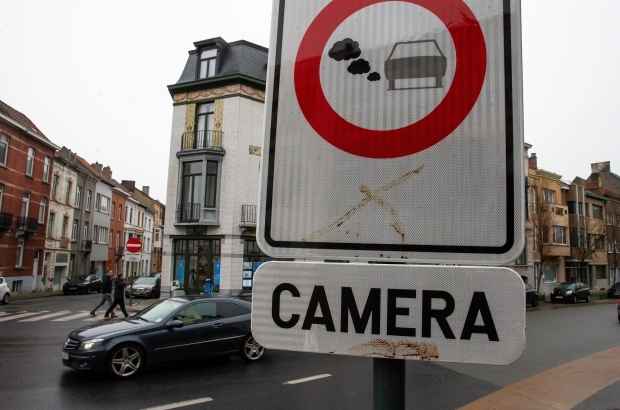- Daily & Weekly newsletters
- Buy & download The Bulletin
- Comment on our articles
Legal challenge against postponement of new low-emissions rules
Four Brussels organisations are initiating court proceedings against the postponement of the tightening of the low emission zone (LEZ) until 2027, saying it is detrimental to air quality and public health.
BRAL, Les Chercheurs d'Air, the Fédération des Maisons Médicales and the Ligue des Droits Humains (Human Rights League) have brought the matter before Belgium’s Constitutional Court, Bruzz reports.
The LEZ legislation is intended to take polluting cars off the road to improve the health people in Brussels, which is one of the most polluted capitals in all of Europe when it comes to air quality. Restrictions tighten over the years as access to affordable, less-polluting vehicles becomes more commonplace.
Drivers of vehicles that violate LEZ standards can be fined €350, with 16,403 fines issued in the Brussels region last year for a total of €5.74 million.
A further tightening of the rules - to ban diesel cars with Euro 5 emission standards and petrol cars with Euro 2 standards - was planned for the start of this year, but was postponed to 1 January 2027 after pressure from various interests, especially in the transport sector. Far-right party Vlaams Belang has called for the abolition of all LEZs.
The postponement led to protests from environmental, cycling and social organisations. The Council of State also had reservations.
“It is advisable not only to justify why the planned phase is being postponed, but also to explain how the intended progress in air quality and greenhouse gas emissions reduction can still be achieved with other measures,” the Council wrote in an advisory opinion.
That opinion is partly what empowered the Brussels organisations to pursue legal options to overturn the postponement.
Also supporting the appeal proceedings are three Brussels residents with chronic respiratory problems.
The claimants argue that the postponement "has serious consequences for the health of Brussels residents, particularly the most vulnerable" and is also contrary to "the right to a healthy environment".
The two main legal arguments they bring are the "standstill principle" - that the government may not roll back acquired rights without providing valid and substantiated reasons - and non-discrimination.
“The health of people in vulnerable neighbourhoods is more affected by this postponement than in other neighbourhoods of Brussels,” explains BRAL, referring to "canyon streets": narrow streets surrounded by tall buildings that trap pollution.
The petitioners said in a joint statement that they hope "to put the air quality issue back at the centre of the political debate".
“If we now allow health rights to be postponed under pressure from political compromises, we are undermining the protection of the most vulnerable – and that is unacceptable,” they said.


















